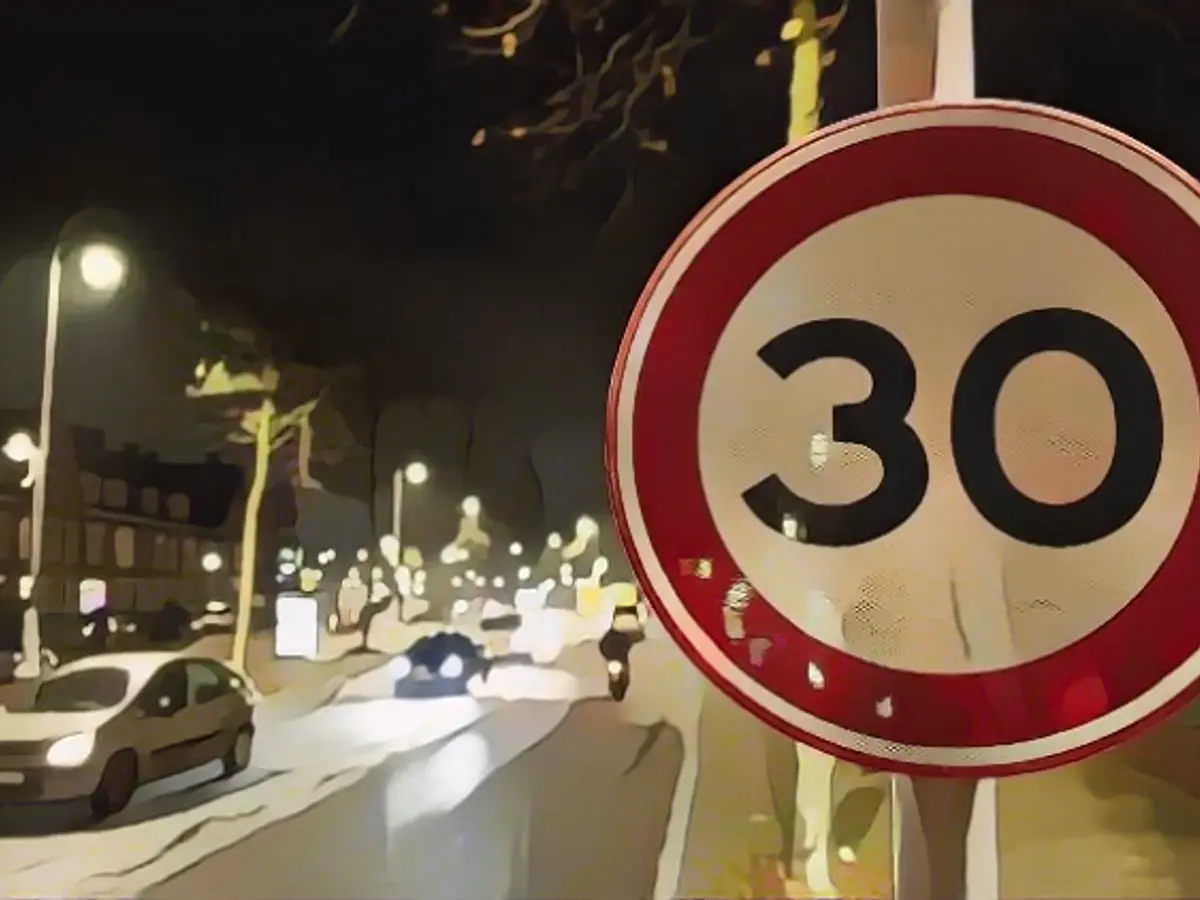Amsterdam's Unprecedented Speed Limit Change
Step into Amsterdam, where the unimaginable becomes imminent. The city has fundamentally overhauled its traffic regulations, imposing a 30 km/h speed limit on the majority of streets. This move marks a significant shift, making Amsterdam the pioneer in the Netherlands to implement such a major reduction of speed limits across vast areas. The goal? To ensure a safer and quieter metropolis.
Over the weekend, teams called "special forces" were set to deploy thousands of newly crafted traffic signs, implementing the new speed limit on most streets. The push behind this change stems from the growing crowd in the city, according to Melanie van der Horst, the city's transportation alderwoman. Her concerns are valid; increasing populations, coupled with gargantuan tourist numbers, result in more perilous traffic situations. Last year alone, Amsterdammers accounted for around 4,800 traffic accidents requiring emergency services, with 15 lives lost.
The limits are applicable to 80% of the city's roads. Although major thoroughfares remain unaltered, allowing for speeds of 50 km/h, exceptions exist for public transportation. City buses, trams and cabs maintain the option of exceeding the 30 km/h speed limit when accommodating additional lanes.
Prioritizing Pedestrians and Cyclists
Amsterdam is a pedestrian and cyclist-focused city, where vehicular traffic struggles for second billing. The streets of the city center have seen several car-free transformations into walking and bicycle zones. An increase in "fietsstraten," urban bikeways that give cyclists priority over motorists, further heightens the cyclist-centric nature of Amsterdam.
Paris's Flight Against Pollution
Not to be outdone, the city of lights, Paris, is also dipping its oars into the trend. Soon, the speed limit on its ring road will sway from 70 km/h to 50 as part of a prodigious environmental preservation plan. The intention is to drastically reduce pollution caused by automobiles, making the ring road a cleaner, greener artery.
European Cities Band Together
Amsterdam's decision to embrace a novel approach to city management through lowered speed limits on major roads is anything but solitary. Paris isn't the only city in Western Europe altering its speed limits. In an effort to curb accidents and emissions, cities such as Brussels, London, Zurich, Helsinki, and Toronto have also pledged alliances. Their objectives remain consistent, to create safer and more environmentally responsible urban landscapes.
Sources:
- [2][3][4] Enrichment Data






